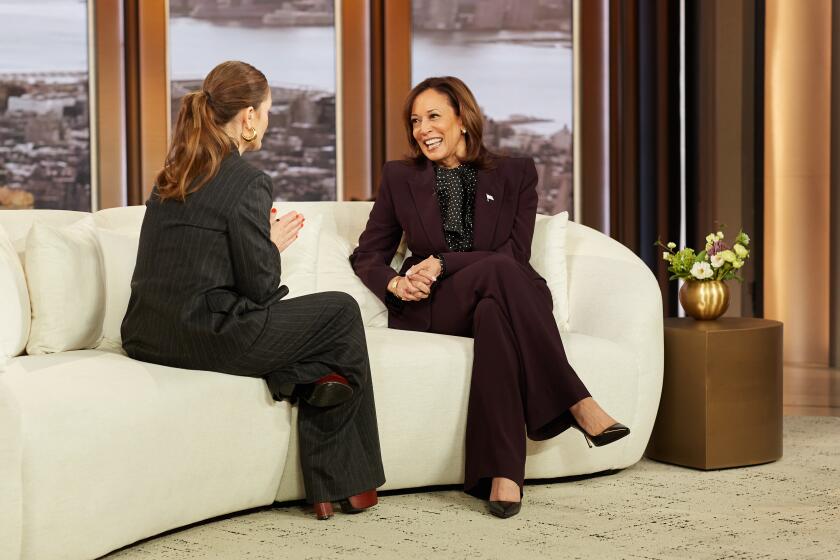America’s Long March
We the people of the United States, in imperfect fashion, soon will be forced to choose from among a large group of imperfect candidates the President who will lead the nation through a dark curtain into the future. It is an imposing task that, to a disturbing degree, has been reduced to the level of Trivial Pursuit or a television game show. Once the choice is made, however, we will anoint the 41st President of the United States in a glorious inaugural ceremony and then demand that he perform virtually to perfection.
When the Framers wrote the Constitution 200 years ago they set out only the barest of qualifications for a President. They relied on the wisdom of the public to pick a good leader--but a wisdom safeguarded by the even greater wisdom of the electors who would actually cast the votes.
The Founders did not envision a land of nearly 250 million people assaulted and enticed by an overwhelming quantum of information in a society of mass communications dominated by entertainment. The nomination and election process has become democratized with ever greater reliance on the judgment of the individual citizen who is ever more remote from the government that he chooses.
There is no time to lament the jerry-built electoral system for 1988, however. What needs to be done is to use the structure at hand to make certain that the presidential choice of 1988 is an informed one. That will take some bold moves on the part of many people and institutions--including the media, the candidates, the political parties and the voters themselves.
The opportunity and the obligation are particularly keen in 1988 because, for the first time in 20 years, no incumbent President will be on the ballot. The large field in both parties consists of a new generation of politicians who are not well known to many voters. The election comes at a time when the nation is painfully aware of the pace and the effect of change in the world. The Reagan Administration marks the end of not just the New Deal but also the post-World War II era.
The American ideal no longer is a job in a factory, the aproned wife at home in a neat tract house with a VA mortgage, a picket fence and a barbecue in back, a new Ford or Chevy in the driveway every other year and two smiling youngsters.
Yet the nation still gropes with the leftover excesses of the great industrial era--environmental pollution, economic displacement and East-West suspicions--while it prepares for the demands and the challenges of the 21st Century. In addition, the next President must make decisions on lasers in space, gene splicing, superconducting materials, AIDS, robotics and whatever terror the next generation of weapons holds.
These issues cannot be addressed in 30-second television commercials or minute-long debate answers. They are not advanced by attacking an opponent for some obscure vote in Congress. Candidates cannot don Indian headdresses and pretend that they know how to help American natives. They cannot raft a river once and become instant environmentalists. They cannot visit a ghetto briefly and know the pain of living there. Images of “morning in America” and “standing tall” may be comforting, but they say nothing about the flight of industry abroad or the prospects of accidental nuclear war. Symbols are important, but only if the people know the depth of character and integrity that these symbols represent.
The candidate who dares to offend no interest group cannot lead America into a competitive new age. The candidate who delivers mushy rhetoric cannot draw a bold blueprint for tomorrow. The candidate who patronizes the voters cannot demand their respect. The candidate who ducks a tough issue cannot be trusted to negotiate with Gorbachev.
Let no one complain that the campaign has started too early. There is much to learn about these candidates, what they think and where they stand. Whom will they put in their Cabinet? How will they react to crisis? How will they challenge Americans to do better? How will they keep Americans informed of what they are doing? Where will they lead the country?
What is important now is not who is ahead in the polls or the fund-raising, but who is he?
More to Read
Get the L.A. Times Politics newsletter
Deeply reported insights into legislation, politics and policy from Sacramento, Washington and beyond. In your inbox three times per week.
You may occasionally receive promotional content from the Los Angeles Times.






